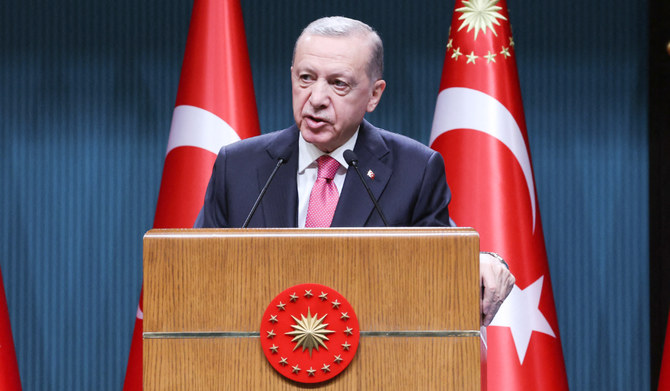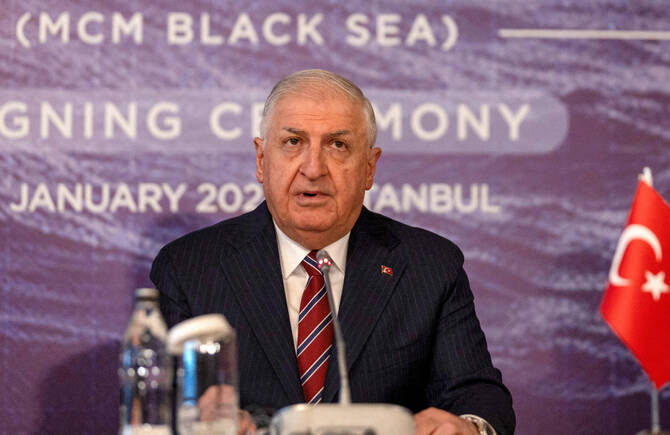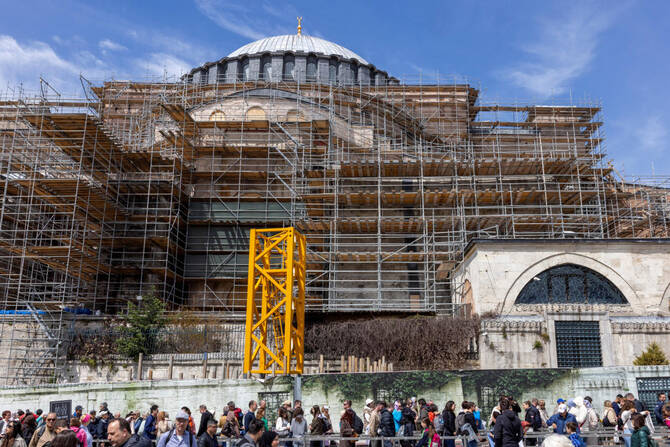ANKARA: Presidential and parliamentary elections will be held in Turkiye on May 14, President Recep Tayyip Erdogan announced on Friday. A second presidential vote will take place on May 28 if a runoff is required.
These elections are considered the country’s most significant in many years, as the opposition bloc is united for the first time as it challenges Erdogan’s two-decade rule.
The opposition’s presidential candidate, Kemal Kilicdaroglu, is leader of the second-biggest party in the parliament, the center-left Republican People’s Party, or CHP. He has the backing of the six parties that form the opposition alliance.
The election campaigns are expected to evolve around the country’s ongoing economic crisis and allegations of mismanagement in the response to the devastating earthquakes that hit 11 provinces last month, killing more than 46,000 people and leaving hundreds of thousands homeless.
Ozgur Unluhisarcikli, the Ankara office director of think tank the German Marshall Fund of the United States, said that any move to postpone the elections would be contrary to Erdogan’s strategy and it is therefore expected the elections will go ahead on May 14, regardless of rumors to the contrary.
“Firstly, the Turkish economy is a ticking time bomb and unless the current monetary policy is abandoned, a currency crisis is a matter of time,” he told Arab News. “While such a crisis can probably be avoided until May, the risk will increase over time.
“Secondly, while Erdogan has significantly raised the minimum wage and civil servants’ salaries, these raises are eroding over time. Thirdly, the recent earthquake will cause additional problems for the economy in the long run.”
Therefore, Unluhisarcikli said, time is not on the ruling government’s side and it is in Erdogan’s best interest to hold the election before these negative factors kick in.
The pro-Kurdish Peoples’ Democratic Party, also known as the HDP, remains the potential kingmaker in the election, as it has not joined either of the two main alliances. It has declared its willingness to negotiate with Kilicdaroglu.
Recent research by Yoneylem, a Turkish polling firm, suggested that the chance of an opposition victory in the presidential election in the first ballot would increase if the HDP supports Kilicdaroglu.
Ilke Toygur, a professor at University Carlos III of Madrid and a senior associate at the Center for Strategic and International Studies’ Europe, Russia and Eurasia Program, believes Erdogan’s calculations about the election are based on two main factors: Preventing the opposition from consolidating, and assuming the economy will deteriorate further.
“The voters are already deeply impacted by high inflation and a cost-of-living crisis — and things just get worse,” she told Arab News.
The election race will not be easy for the opposition, either, according to Toygur.
“They have just announced their candidate after days of existential drama,” she said. “Both the media and the state resources are used against them. There are open law cases against some, which could be instrumentalized any minute.
“It is a very unfair competition. The situation after the earthquake opens up many questions about voter registration and participation.”






















